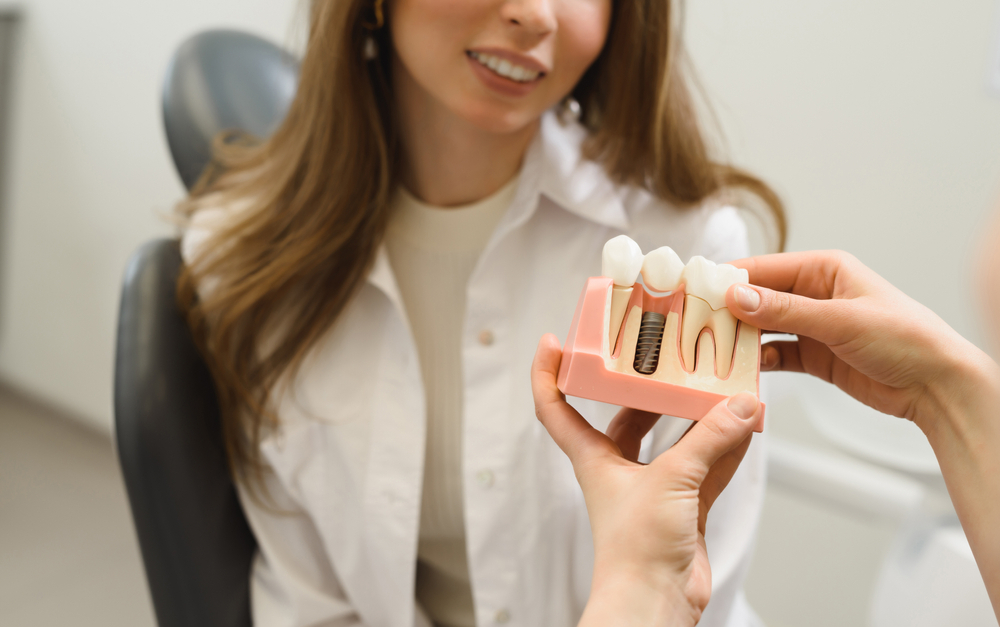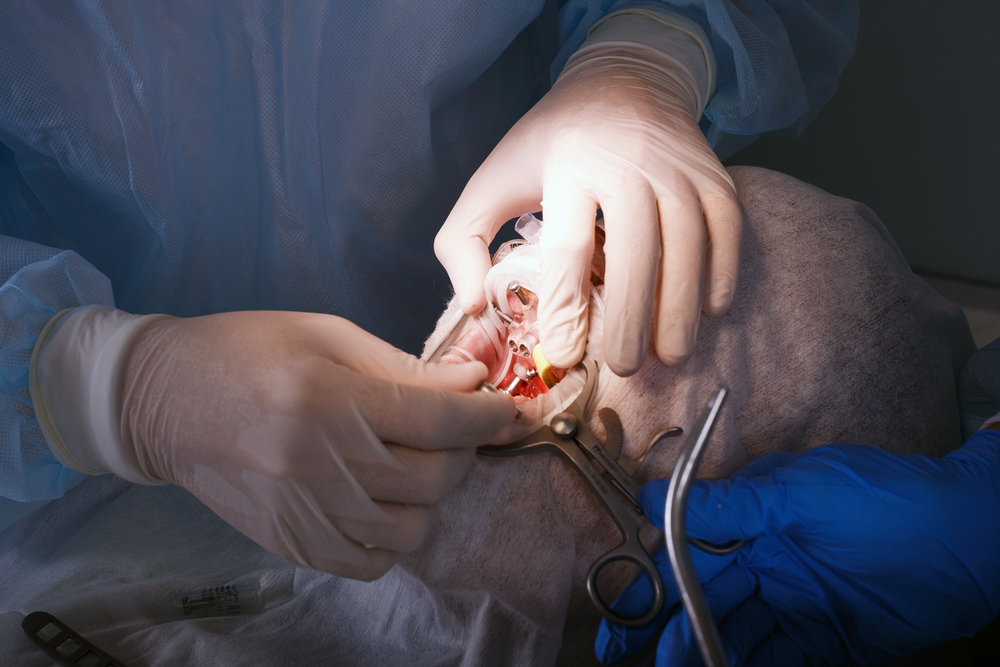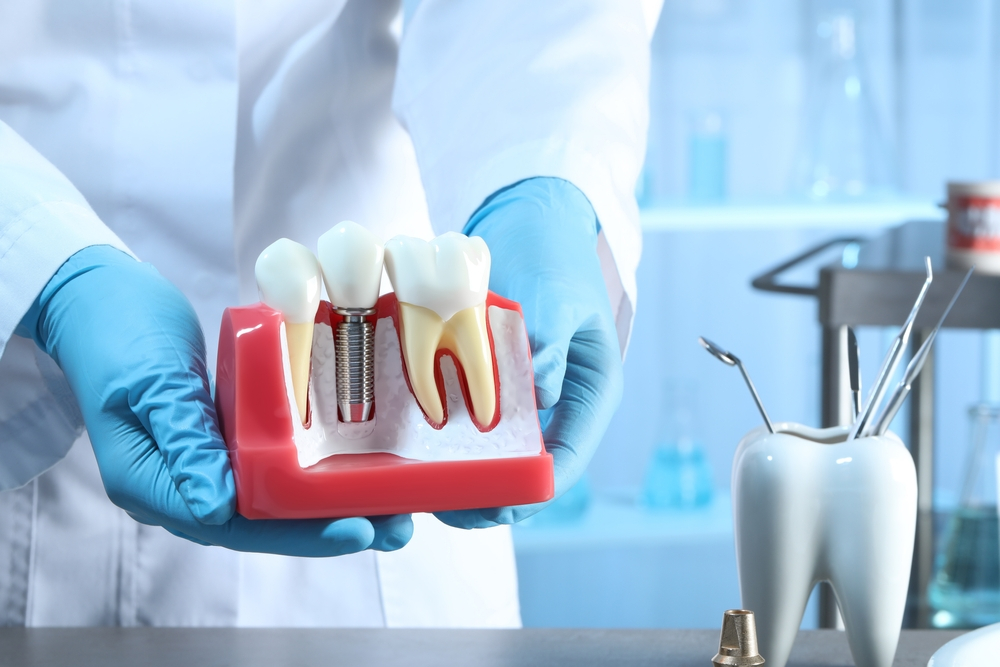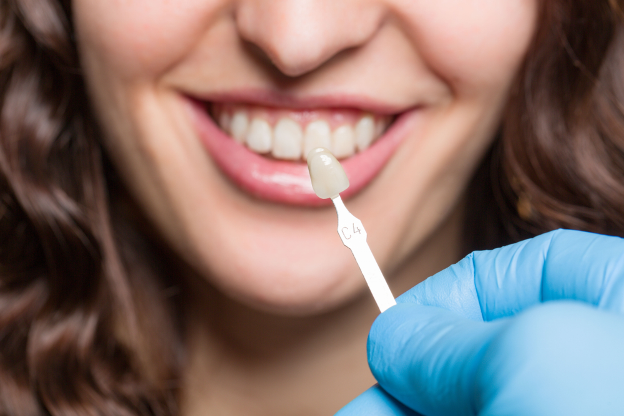
Everyone loves a smiling face! A beautiful smile is essential for making a great first impression and makes you more attractive. It is always one of the first things somebody notices about you. In addition, it can help you stand out from the crowd. So it’s critical to make sure it’s looking its best. Undoubtedly, a beautiful smile can brighten your day and give you the confidence to take on whatever comes your way.
But what can you do if you aren’t lucky enough to have perfect teeth? Many of us don’t like the appearance of our teeth, maybe because our teeth are stained, misshapen, or chipped. Luckily, if you’re not happy with the appearance of your teeth, there’s a solution for that – dental veneers!
Let’s look at what veneers can do to help improve your smile.
What Are Dental Veneers?
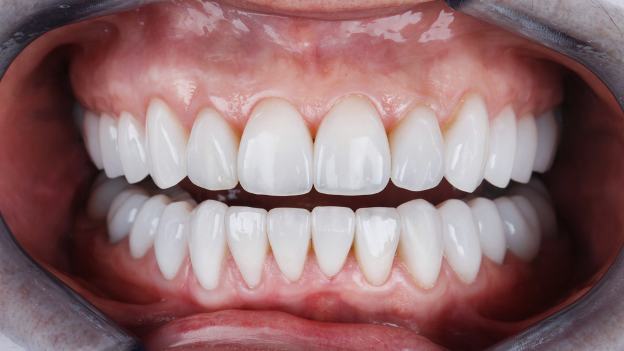
Dental veneers are thin, custom-made, tooth-colored shells that cover the front of your teeth. They are bonded directly onto the front surface of your natural tooth structure to cover imperfections and give you a more beautiful smile. A particular type of dental adhesive holds them in place. They can be used to improve the appearance of your smile but can also be used to protect the teeth from damage and give you the confidence you need to show your best self to the world. There are numerous reasons why you might consider dental veneers. Dental veneers cover up any chips or cracks in your teeth and make them look whiter and brighter.
Veneers can give you back a bright white smile if you have stained teeth. If your teeth are chipped or cracked, veneers can help protect them from further damage and give you a more uniform look. And if your teeth are misaligned or gapped, veneers can give you a straighter, more polished appearance.
Regardless of your reason for considering veneers, they’re an investment in yourself and your future. With proper care, veneers can last for many years and give you the perfect smile you’ve always wanted.
Types Of Dental Veneers
Veneers are created from various materials, but porcelain is the most popular. There are two common types of dental veneers. You can choose between porcelain veneers or resin veneers.
Porcelain veneers are made of high-quality materials that resemble natural tooth enamel. Porcelain veneers are ceramic and can be used to cover stains or minor chips in your teeth. When applied, these veneers create a more uniform appearance and restore your teeth’s natural luster.
Resin veneers are made of acrylic resin, durable, flexible materials that you apply directly to the surface of your teeth. These can fix minor tooth misalignments. When applied, these veneers can straighten your teeth or correct a gap between your teeth. Both types of veneers are very effective and safe to use. In addition, they are used to repair small flaws in your teeth and cover minor chipping.
Difference Between Them
| Porcelain veneers | Resin veneers |
| More expensive | Less Expensive |
| Stronger and last for a long time | It Only lasts between 5 – 7 years |
| Less likely to get damaged or stained | Gets damaged more easily |
| Need more than one visit to get applied | Can be applied in one visit |
The Benefits Of Dental Veneers
Include the following:
- Enhance the appearance of your teeth by restoring the color and shape of the teeth
- Can improve the health of your teeth
- They are a conservative method of cosmetic improvement
- The material is durable, long-lasting, and easy to maintain
- The procedure is relatively simple and quick to perform
- They can enhance the beauty of your smile
- Restore teeth with dark stains
- They are effective at treating chipped, cracked, and stained teeth
- They can fix misshaped teeth
- They can correct teeth spaced too close together (close gaps between teeth)
Why Should You Get Your Veneers ASAP?
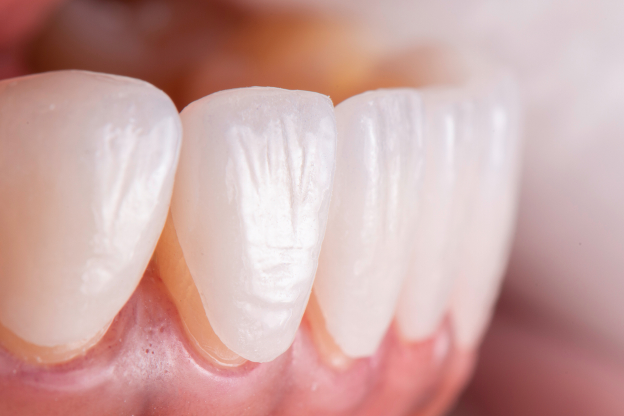
First, you should get your veneers as soon as possible because your teeth will continue to deteriorate. As the surface layer of your teeth starts to wear away, they can begin to crumble and eventually break away. Over time, your tooth enamel will become thinner and weaker, making it susceptible to breaking. The longer you wait, the greater the risk of damage to your teeth.
The second reason is that with time your gums and bone tissue around your teeth could suffer damage. If you wait too long, your gums could begin to recede, causing the gap to increase and the bone tissue to deteriorate. When this happens, you may find that you need a bone graft as well.
Do You Need Extra Preparation Before Getting Dental Veneers?
Yes, you should prepare yourself well before getting dental veneers. Furthermore, you should also ensure you don’t have any problems that can interfere during the procedure. For example, you should make sure that your gums are healthy before you go for dental veneers. Your dentist will examine your gums and your oral cavity to make sure that there are no pockets or bleeding. You will need to visit a periodontist first with any gum disease indication. He will evaluate your gums and perform gum surgery if required.
To prepare your mouth, your dentist will clean it. Next, they will remove food debris and plaque from the teeth and gums. After that, they may apply fluoride to your teeth to make them stronger. You should also avoid drinking alcohol and smoking. These can prevent you from having a successful dental procedure.
How Is This Procedure Performed? (Diagnosis & Treatment)
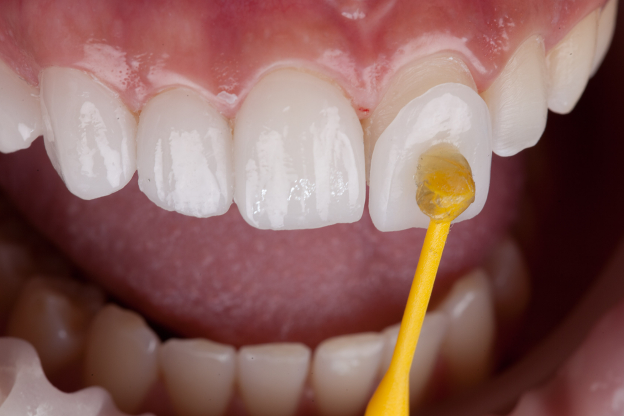
The veneer process begins with a consultation with your dentist to see if you are a good candidate for the procedure.
If you are, your dentist will take impressions of your teeth and send them off to a dental lab where veneers will be custom-made to fit into your mouth. Veneers take 2-4 weeks to set and get hardened fully. Meanwhile, you can use temporary dental veneers while you wait for the permanent ones.
After 2 – 4 weeks, Once the permanent veneers arrive back at the office, your dentist will clean and prep your teeth before bonding the veneers in place. The dentist will remove the damaged enamel from your natural teeth during the procedure and reshape the tooth surface. Then, a thin layer of porcelain (Permanent veneers) is attached to your natural teeth.
While dental veneers are considered a very safe and effective cosmetic procedure, they have some potential risks and side effects.
These include tooth sensitivity, gum irritation, and potential damage to adjacent teeth during the bonding process. Discuss these risks and concerns with your dentist before proceeding with treatment.
How To Maintain and Care Of Dental Veneers?
Proper care for your dental veneers is vital to keep them looking their best. The good news is that caring for your veneers is easy, and with a little effort, you can keep them looking fabulous for many years to come. Here are some tips for maintaining your veneers:
Regularly brush and floss: You should brush your teeth twice daily and floss regularly, but it’s even more critical if you have veneers. It would be best if you did at least daily flossing with veneers. Plaque and tartar can build up on your veneers just like on natural teeth. Maintaining a good oral hygiene routine is critical to ensuring your veneers last.
See your dentist regularly: You should see your dentist every six months, or at least yearly, for a cleaning and checkup. It’s essential to see them regularly if you have veneers. Your dentist can spot any issues early on and recommend treatments accordingly.
Avoid biting or chewing hard objects: Even if your veneers are porcelain, which is strong but not indestructible, you should avoid biting or chewing on hard, crunchy, and sticky foods with your veneers, as they can be damaged.
Talk with your dentist about ways to achieve your desired bright smile. By following these simple tips, you can ensure that your dental veneers will remain in great shape for years to come!
Start Your Tooth Trek Today!
Join the many other people from the USA and Canada traveling abroad for dental care. They have learned this secret about getting affordable dental care and having an incredible time.
Reach out for a free consultation with our network of dentists.

